Tom's answers in another post about Bart Ehrman and his book Jesus, Interrupted.
Tom got some of his research from a site similar to this here - http://www.ufaqs.com/wiki/en/ma/Mass...0Innocents.htm
Unfortunately many scholars have a problem with the account in Matthew about Herod committing infanticide.

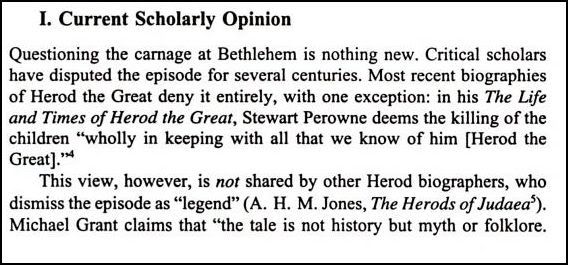
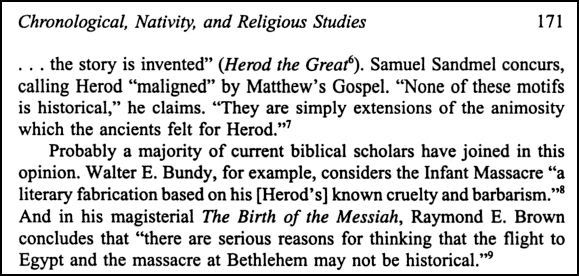
As for the Macrobius quote that in itself is dubious as Maier states:
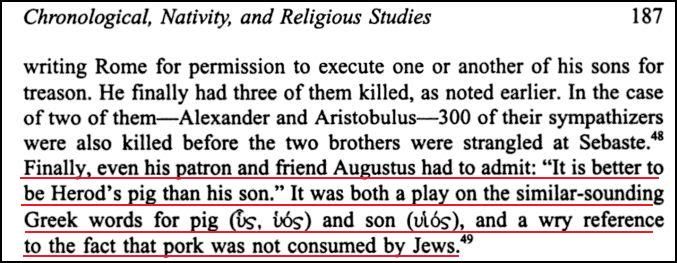
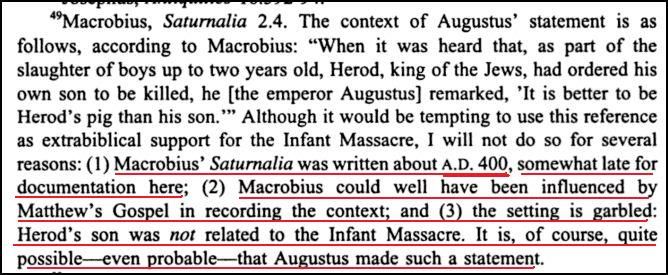
Was Herod a tyrant? Absolutely. Is the Macrobius source a worthy candidate to consider as evidence outside of the bible of this event happening? No. That is why Tom wanted to cover his tracks with this sentence:
"Secondly, there are many examples of historical events which have only been recorded by one source, and yet they are accepted as historically reliable, for example, much of what we know about Alexander the Great."
However unfortunate though Macrobius wrote this way after the times of Christ making it a very obscure and unreliable sentence.
Michael Molnar brings up another issue:
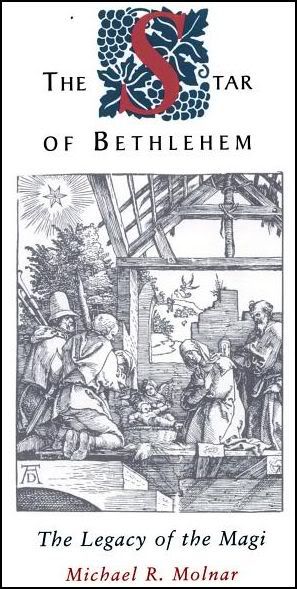
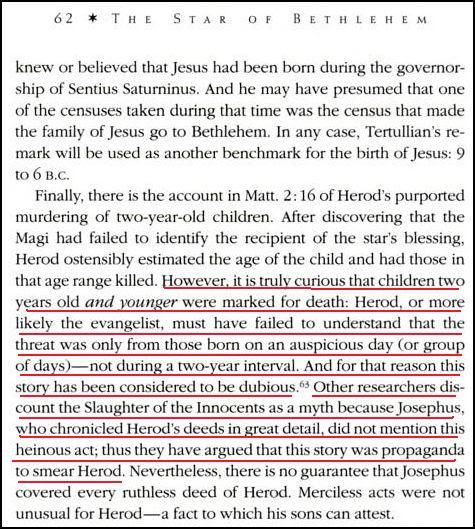
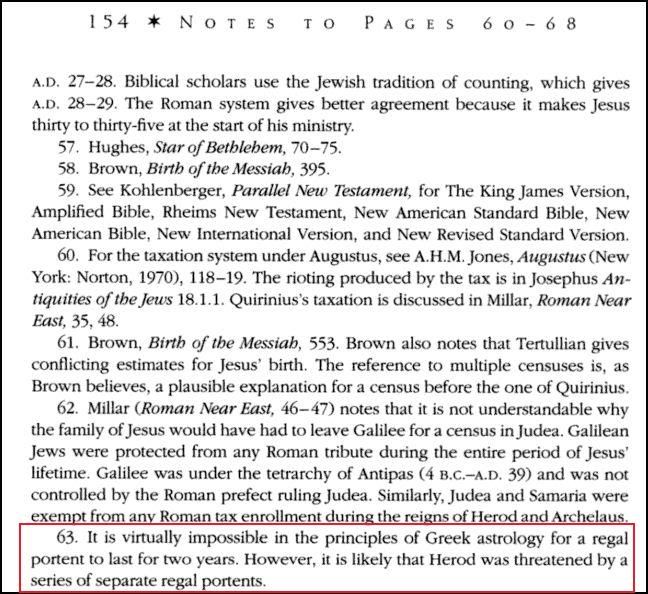
Claim #1: Herod’s order to slaughter all children under two is not recorded anywhere else other than in Matthew.
Firstly, Ehrman would have to make the argument that Matthew’s account is not historically reliable, which no one has ever managed to do. Secondly, there are many examples of historical events which have only been recorded by one source, and yet they are accepted as historically reliable, for example, much of what we know about Alexander the Great.
Even so, the shocking nature of the slaughter of the innocents would make one think all historians would have recorded such an event. Even Josephus records atrocities committed by Herod against those he believed had ambitions of attaining his throne. Herod even murdered his two sons fearing they would overthrow him. History shows Herod was a paranoid ruler who was willing to do what was needed to maintain his position. If he had ordered the slaughter of all males under two years of age, it would have been well within his character. However, we must realise that Bethlehem was a small village. If the village only had a few hundred residents, as is ascertained, statistically this would make the number of males under the age of two around 20 – not exactly a big number in the scheme of things and certainly not the largest massacre in history.
But Herod's character and the amount of victims is not proof of this event. Where is the actual evidence that this event occurred? If we can consider the eye witness account of Matthew reliable (and no one has ever been able to demonstrate that it is not), we can accept his version of the events. But if we are looking for extra-Biblical sources, we can consider the following passage:
"When Augustus heard that Herod king of the Jews had ordered all the boys in Syria under the age of two years to be put to death and that the king's son was among those killed, he said, 'I'd rather be Herod's pig than Herod’s son.'" (Macrobius)
Unlike the account mentioned in the book of Matthew, Macrobius mentions the massacre taking place in Syria and combines the event with the murder of Herod's sons. Because Palestine was considered a Syrian province at the time, Macrobius could be referring to the vicinity of Bethlehem.
Firstly, Ehrman would have to make the argument that Matthew’s account is not historically reliable, which no one has ever managed to do. Secondly, there are many examples of historical events which have only been recorded by one source, and yet they are accepted as historically reliable, for example, much of what we know about Alexander the Great.
Even so, the shocking nature of the slaughter of the innocents would make one think all historians would have recorded such an event. Even Josephus records atrocities committed by Herod against those he believed had ambitions of attaining his throne. Herod even murdered his two sons fearing they would overthrow him. History shows Herod was a paranoid ruler who was willing to do what was needed to maintain his position. If he had ordered the slaughter of all males under two years of age, it would have been well within his character. However, we must realise that Bethlehem was a small village. If the village only had a few hundred residents, as is ascertained, statistically this would make the number of males under the age of two around 20 – not exactly a big number in the scheme of things and certainly not the largest massacre in history.
But Herod's character and the amount of victims is not proof of this event. Where is the actual evidence that this event occurred? If we can consider the eye witness account of Matthew reliable (and no one has ever been able to demonstrate that it is not), we can accept his version of the events. But if we are looking for extra-Biblical sources, we can consider the following passage:
"When Augustus heard that Herod king of the Jews had ordered all the boys in Syria under the age of two years to be put to death and that the king's son was among those killed, he said, 'I'd rather be Herod's pig than Herod’s son.'" (Macrobius)
Unlike the account mentioned in the book of Matthew, Macrobius mentions the massacre taking place in Syria and combines the event with the murder of Herod's sons. Because Palestine was considered a Syrian province at the time, Macrobius could be referring to the vicinity of Bethlehem.
Unfortunately many scholars have a problem with the account in Matthew about Herod committing infanticide.



As for the Macrobius quote that in itself is dubious as Maier states:


Was Herod a tyrant? Absolutely. Is the Macrobius source a worthy candidate to consider as evidence outside of the bible of this event happening? No. That is why Tom wanted to cover his tracks with this sentence:
"Secondly, there are many examples of historical events which have only been recorded by one source, and yet they are accepted as historically reliable, for example, much of what we know about Alexander the Great."
However unfortunate though Macrobius wrote this way after the times of Christ making it a very obscure and unreliable sentence.
Michael Molnar brings up another issue:




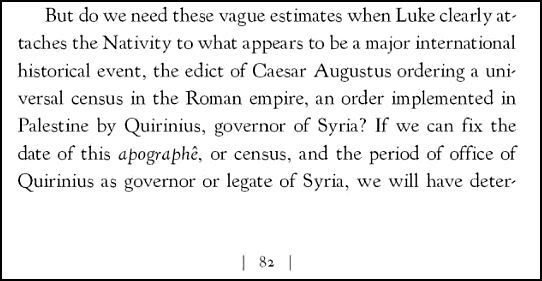
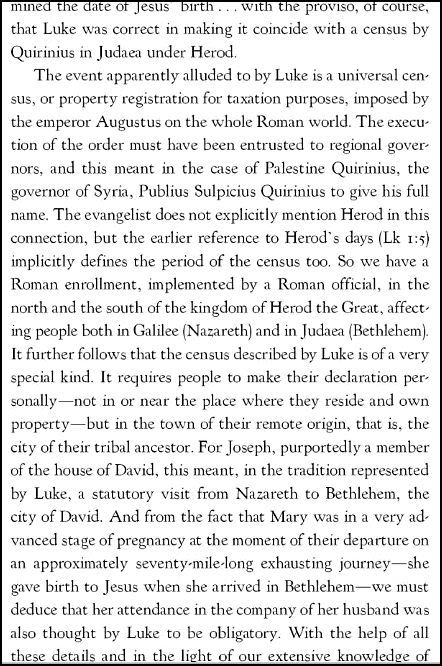
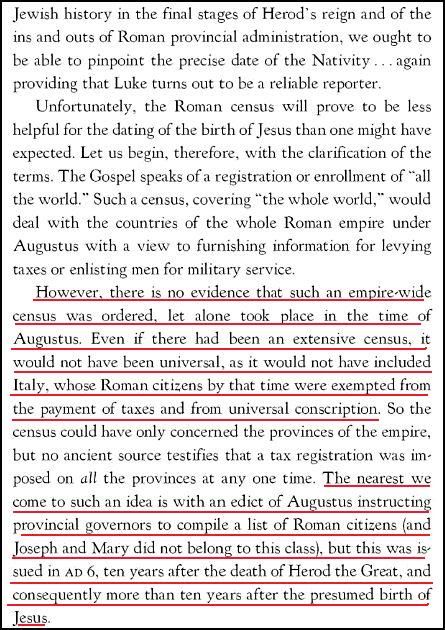
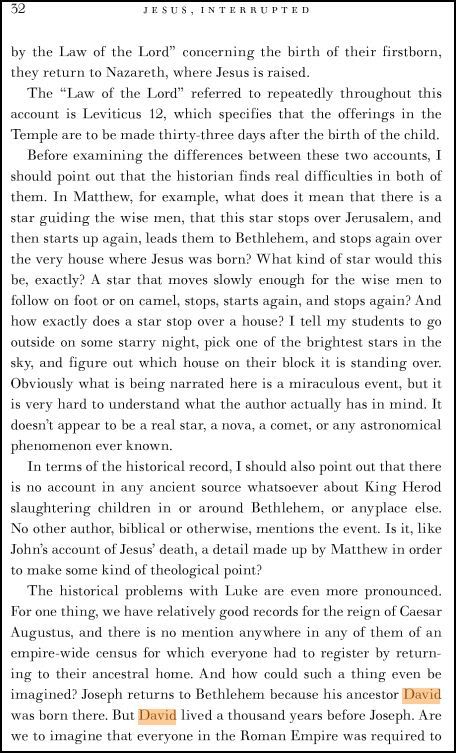
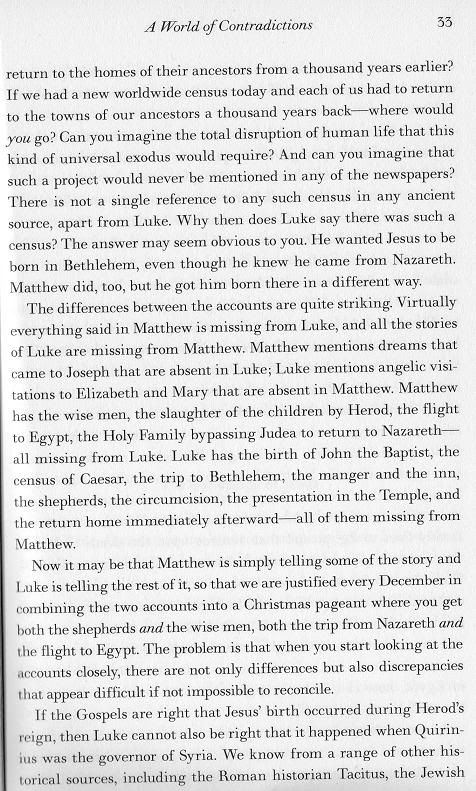

 To be taxed with Mary his espoused wife, being great with child.
To be taxed with Mary his espoused wife, being great with child.  , begins his investigative reporting one century late on the birth of John the Baptist (interestingly this account of John the baptist birth is missing in Matthew's gospel) and not Jesus. Eventually we find Mary visited by an angel telling her that she is to conceive god's child.
, begins his investigative reporting one century late on the birth of John the Baptist (interestingly this account of John the baptist birth is missing in Matthew's gospel) and not Jesus. Eventually we find Mary visited by an angel telling her that she is to conceive god's child.







Comment